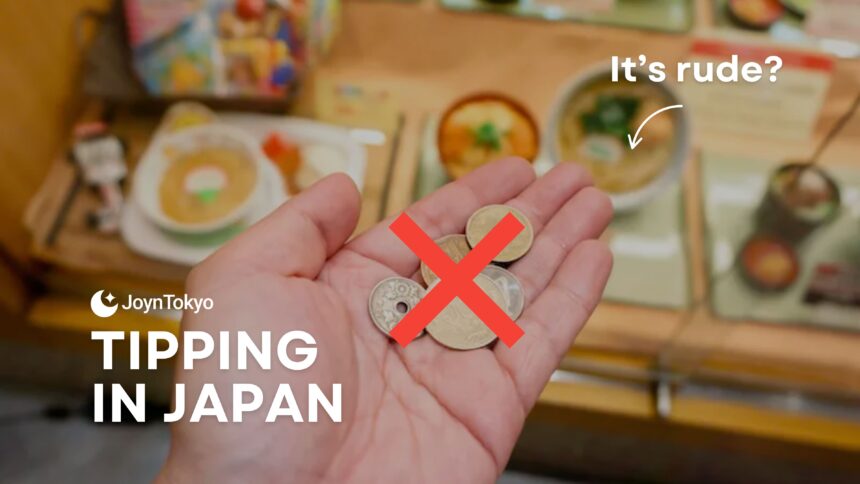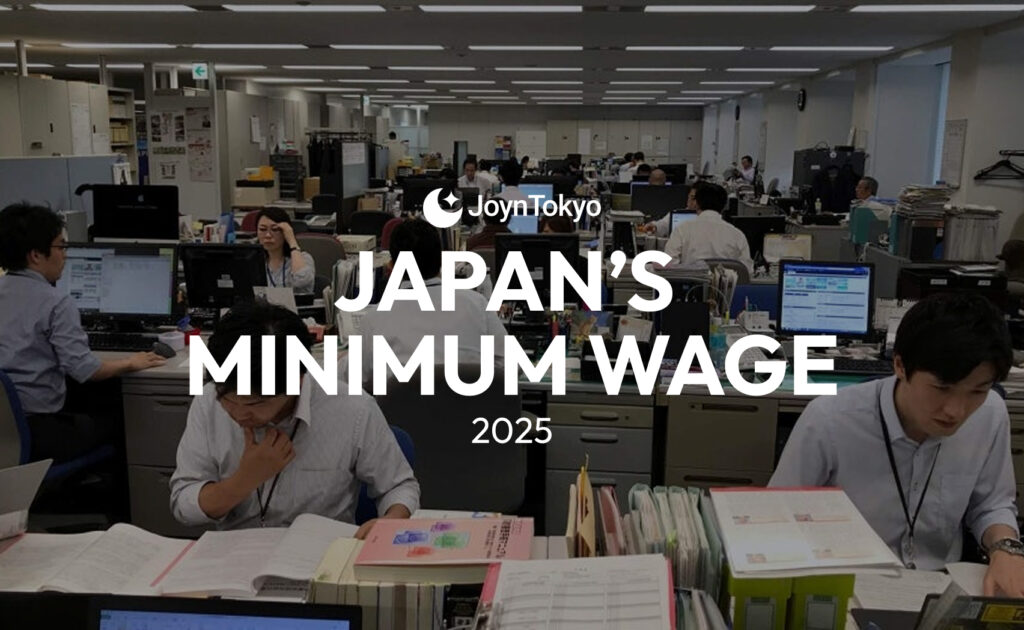For many people around the world, tipping can be an acknowledgment of good service. In others, like the US, it is practically mandatory, as without tips, wait staff (and sometimes even kitchen staff) aren’t able to make enough money to live — as you will doubtless recall from Reservoir Dogs. So what about Japan? How much should you tip? When should you tip?
Or… should you tip at all? Is not tipping the best way? We’ll give you some tips.
Do You Tip in Japan and Is It Customary?
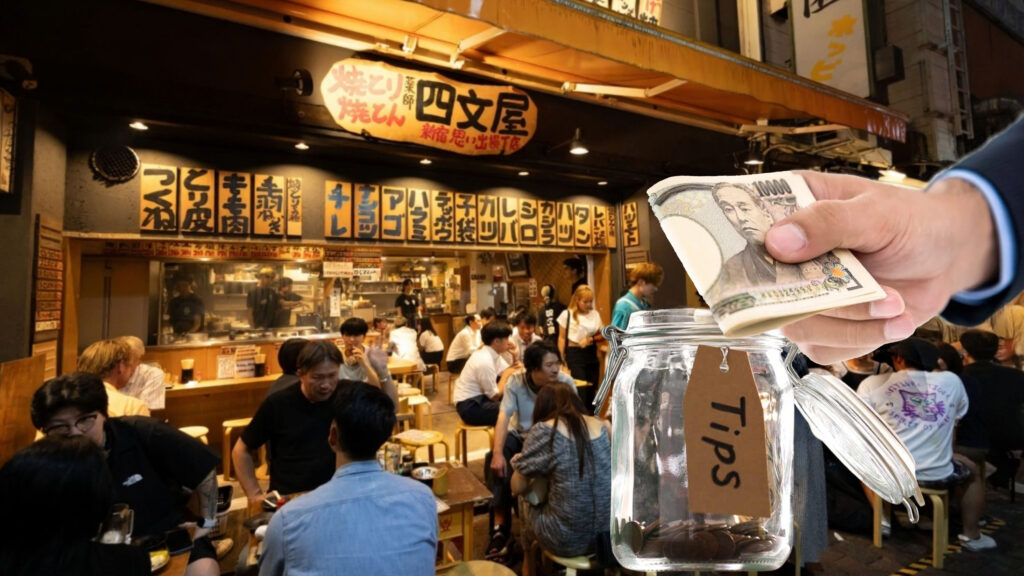
In general, tipping is highly uncommon in Japan. Japanese service culture takes excellence as a given: in some bars and restaurants, the wait staff will pour sake (also known as Nihonshu) until it overflows, as a demonstration of the establishment’s wealth and generosity. As such, tipping is considered to be troublesome: calculating correct tips can take time and effort, which gets in the way of the efficiency that is key to Japanese hospitality.
But surely everyone puts in hard work into their service in other countries, and they still accept tips, right? So why not in Japan?
Why Is Tipping Rude in Japan?
While it is going too far to consider tipping to be “insulting,” it is certainly unwelcome in most situations. For many chain restaurants, there are no systems in place to redistribute tips among staff, and so reporting any extra income for tax purposes is difficult and complicated.
Beyond this, though, is the aforementioned pride in the service that is a hallmark of Japan. Staff are more than happy to go above and beyond: once at a restaurant, I asked the owner for coffee at the end of the meal. Because they do not serve coffee, she went to a nearby convenience store to buy some for me.
Still, tips are refused: there is an implication that servers are not being paid enough, or that they require financial incentives to do their work. As mentioned, some may laugh if offered a tip, and it’s not an insult so much as a faux-pas. But with few exceptions, tips will always be refused. And one thing that often surprises visitors and new arrivals is how pervasive this attitude is. Let’s go through some of the common areas where you would tip, and why you normally don’t in Japan.
Do You Tip Taxi Drivers in Japan?
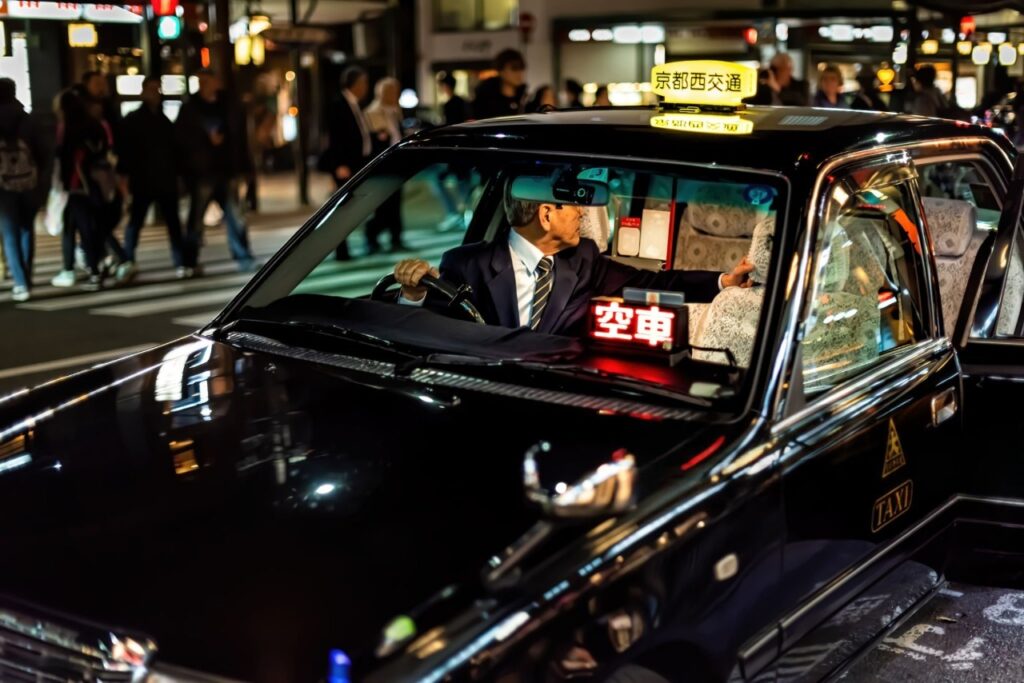
After taxi rides, tipping is not the done thing in Japan. Even saying “keep the change” will get you a confused look, at best. Taxi drivers are, like many service workers, proud if the work that they do and don’t feel the need for extra financial incentive to improve their performance.
Do You Tip at Restaurants in Japan?
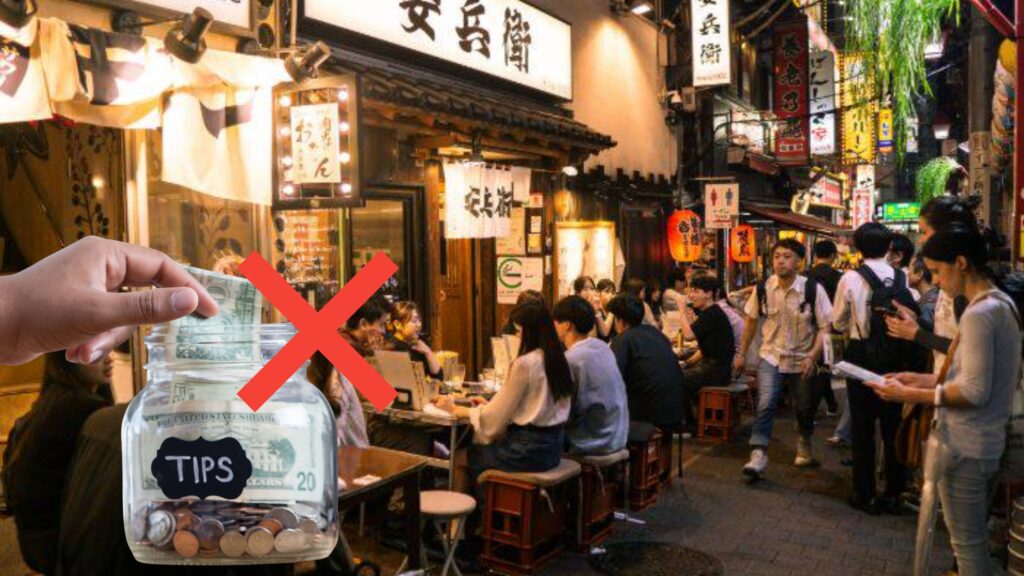
Again, this is typically a non-starter. Even if you leave money, you will likely be caught up to by your server, who will hand you your change (which just makes more trouble for them). That being said, some high-end restaurants will have service charges included in the bill, which essentially works as a tip.
One exception to this rule is in restaurants that are explicitly US brands, or made to serve American food. In these cases, you may see a suggested tip on your final bill.
Do You Tip Hotel Staff in Japan?
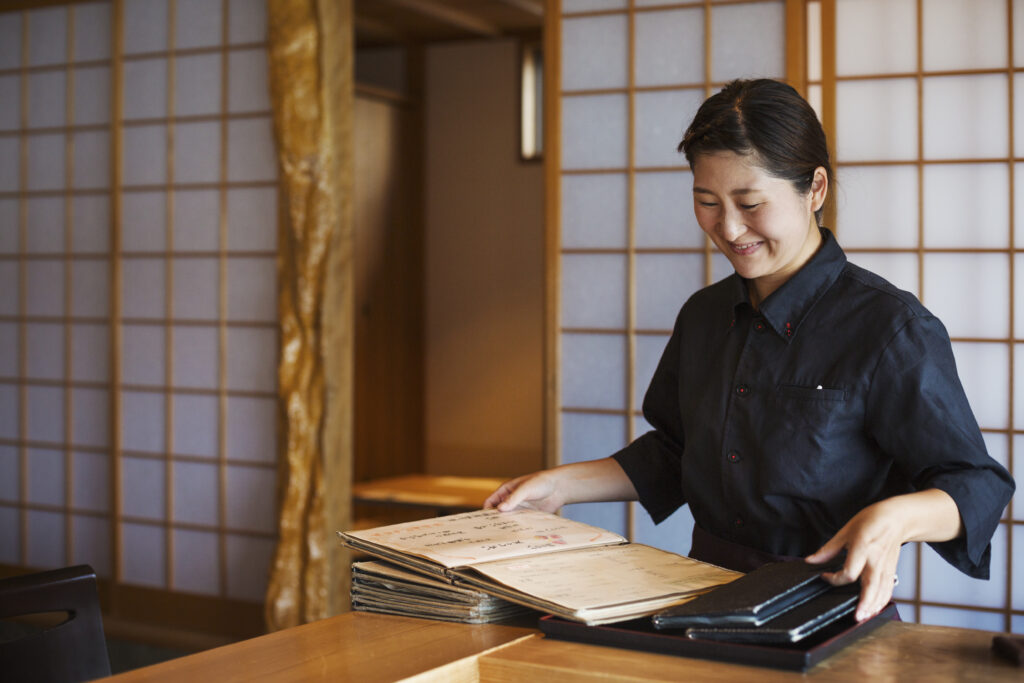
Hotel staff will also not expect and will likely not accept tips. Hotel staff are typically fairly paid, and will refuse tips if offered them.
However, there is one exception: if you are staying at a traditional Japanese inn (a ryokan), the owner will often go out of their way to help you, often giving recommendations of places to go, and even picking you up from a train station. For ryokan, it is acceptable to leave a tip. However, because handing over cash is considered gauche, it is best to leave your tip in an envelope, either handed to the owner directly, or left in your room.
Do You Tip Tour Guides in Japan?
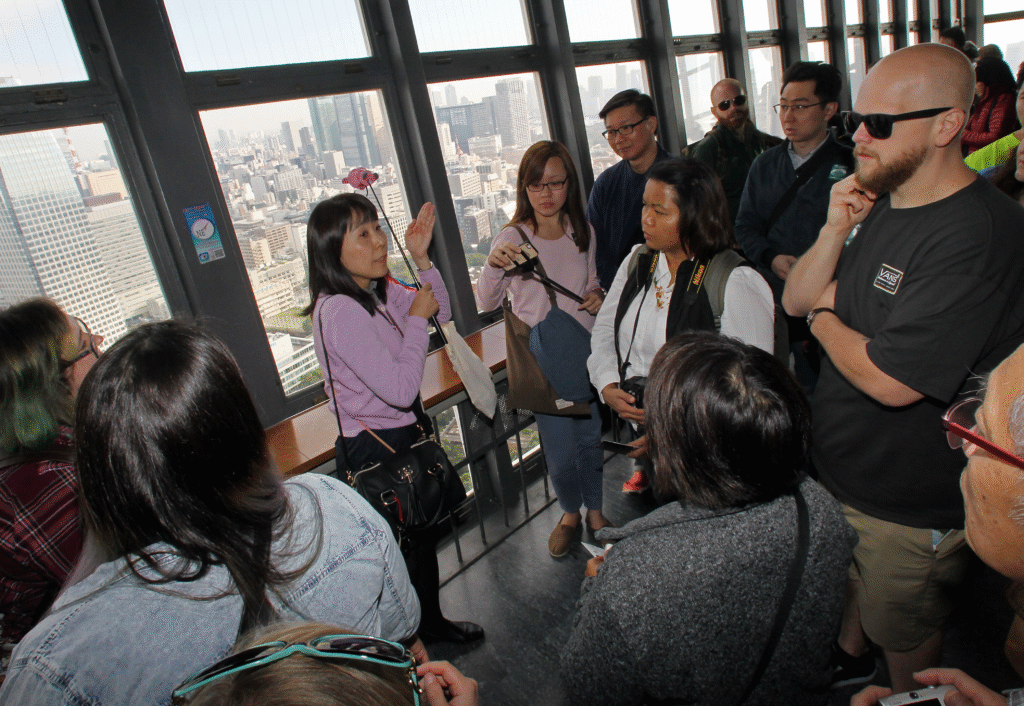
Here is one area where tipping is sometimes allowed. Although a Japanese tour guide might chuckle, it is not unheard of for them to accept a tip. For any western guides, however, while it may not be necessary to give a tip, many will be accustomed to receiving them. As such — especially for private guides — it is wise to remember to tip them at the end of your tour.
How to Show Appreciation Without Tipping in Japan
So without tipping, what can you do to show that you are grateful? As with many situations in Japan, showing some politeness and awareness can work wonders. Here are some basic phrases to show your appreciation:
| Japanese | Romaji | English |
|---|---|---|
| ありがとうございます | Arigatou gozaimasu | Thank you very much |
| ごちそうさまでした | Gochisou sama deshita | Thank you for the meal |
| 感謝します | Kansha shimasu | I am very grateful |
What Happens If You Try to Tip in Japan?
As mentioned, many people in Japan won’t accept tips. You may get a chuckle or a verbal thank you, but continuing to try and give someone your money will quickly make things awkward.
That said, very occasionally, people are happy to receive small gifts: I gave some deliverymen a beer each for helping deliver my fridge and washing machine, which they happily accepted (though they noted it was the first time they’d ever been offered a gift).
Tipping in Japan FAQ
So, to summarize what we’ve learned in this article:
Q. Can you tip in cash discreetly?
A. In some circumstances, such as staying at a ryokan, cash tips (in envelopes) are acceptable. Otherwise, no.
Q. Will staff be offended if you try to tip?
A. “Offended” is a strong word, but it can make things very awkward.
Q. Are gift cards or small tokens acceptable?
A. No: tipping as a whole is discouraged, and gift cards are not given in the rare events that tipping is permitted.
Q. Is tipping changing in Japan in 2025?
A. No. Japan is very slow to make big societal changes, so the non-tipping culture isn’t going to change any time soon.

